Teaching beginning reading
3 Replies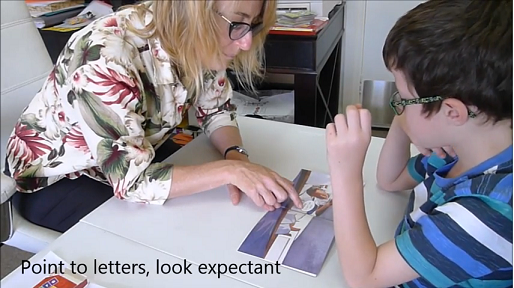
Here’s another video demonstration, this time of strategies to help a child successfully read a short, simple book.
The book contains only little words this child can sound out, plus a few common words of which he already has mental images, like “I” and “you” and “see”.
There are many simple, decodable books like the one in this video available, if you know where to look. Click here for a list. Many are also quickly (and often very affordably) available for iPad/tablet or other computers, as apps or electronic books.
Profuse thanks once again to this delightful student and his parents for allowing me to record and share this video.
Of course, as soon as I watched this video I started thinking of all the things I should/could have done better in this session.
Oh well, nobody’s perfect, and I hope it’s still useful.
Phonics crosswords
2 Replies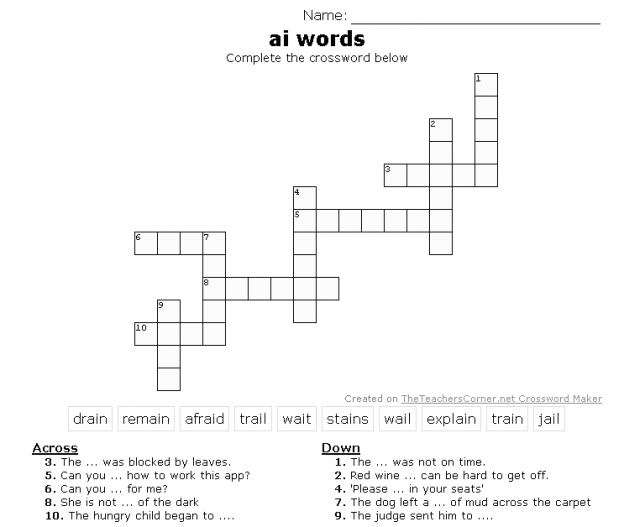
I have a student working on vowel spellings who’s keen to do crosswords, so I went looking for ones with words organised by spelling pattern.
I found lots of crosswords in the book “Activities for Successful Spelling – the essential guide” by Philomena Ott.
I’ve had this book for a long time, but I found incorrect information in the introduction e.g. it says “oo” as in “cook” and “oo” as in “pool” are diphthongs, and that some people are auditory learners, others kinaesthetic learners etc, so I was put off, and after having spent a lot of money on this book, haven’t really used it.
Here’s a crossword from this book:
 This crossword provides practice with “ay” as in “bray, betray, jay, hay” etc. So it ticks my “does this activity make a point about spelling?” box. (more…)
This crossword provides practice with “ay” as in “bray, betray, jay, hay” etc. So it ticks my “does this activity make a point about spelling?” box. (more…)
Phoneme pronunciation
0 Replies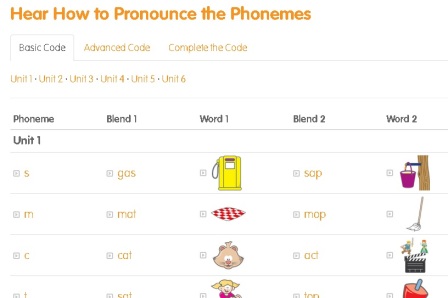
Pronouncing sounds crisply when helping beginners with literacy is very important, especially for blending.
For example, in the word “rat”, some adults say the sounds “r”, “a”, “tuh”, which blended together makes “ratter”.
To give a learner the best chance of blending this word successfully, the sounds need to be pronounced “r”, “a”, “t”, where the “t” is just a little puff of air made with the tongue behind the teeth, and has no voice and no vowel hanging off the end of it. (more…)
Geraldine the Giraffe learns schwa
3 Replies
A colleague has just pointed out a YouTube video which I think perfectly makes the point that a little bit of phonics knowledge can be a dangerous thing.
It illustrates why we urgently need proper, linguistically accurate training for teachers and early literacy authors/publishers.
The video is called Geraldine the Giraffe learns schwa. It seems to be from the UK, and it is being shown to at least some Grade Prep children (5-6 year-olds) here in Melbourne.
Geraldine the Giraffe is a puppet who, after some groovy music and a bit of chitchat, is told she will be learning about the “u” sound.
The letter “u” appears on the screen and she is asked to say the sound “u” (as in cup):
 Then the narrator says, “Rather than learning about the ‘u’ sound with the U letter shape, we’re going to learn about the schwa, and the schwa is the name that we give to the ‘u’ sound in words using a different letter.”
Then the narrator says, “Rather than learning about the ‘u’ sound with the U letter shape, we’re going to learn about the schwa, and the schwa is the name that we give to the ‘u’ sound in words using a different letter.”
Unfortunately, this is simply wrong. The sounds “u” as in “cup” and the schwa sound are two completely different sounds. (more…)
The spelling ough
14 Replies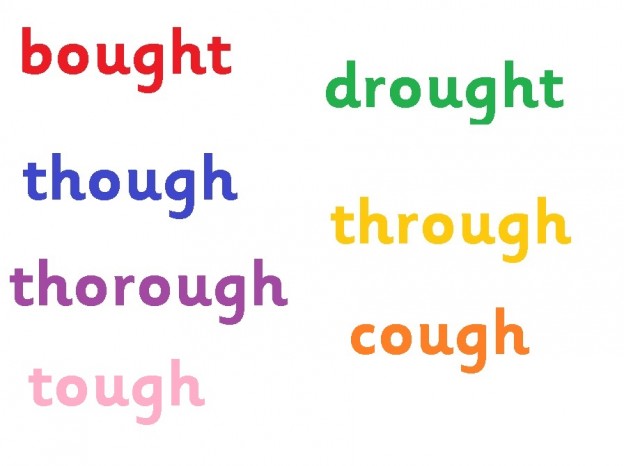
The spelling "ough" can be pronounced eight different ways in English.
Don't panic, there aren't many words, and some of them are so arcane I usually don't bother teaching them. But let's be fairly comprehensive here.
There are five different single sounds, and three sound combinations.
- "aw" as in bought, brought, fought, nought, ought, sought, thought and wrought iron.
- "ou" as in when the bough or the drought breaks, and the UK spelling of plough (in the US regularised to plow), as well as doughty old characters, the soughing wind and a deep slough of depression.
- "oh" as in dough, furlough and though, as well as doughnut and although, if you want to count them separately.
- "ooh" as in through.
- "uh" as in thorough and borough, and names like Gainsborough, Marlborough, Peterborough and Scarborough.
- "u" plus "f" as in rough, tough and enough, plus a snake sloughing off its skin.
- "o" plus "f"* as in cough, former Australian Prime Minister Gough Whitlam and a cattle trough.
- "u" plus "p" in hiccough, though nowadays many people seem to spell this hiccup.
That's it, as far as I know. Not so terrible after all.
* The "gh" spelling of the sound "f" is also used in the word "laugh", and goes after a vowel. Before a vowel, "gh" usually represents the sound "g" as in "Afghan", "ghost", "spaghetti" and "yoghurt".
Free spelling book
2 Replies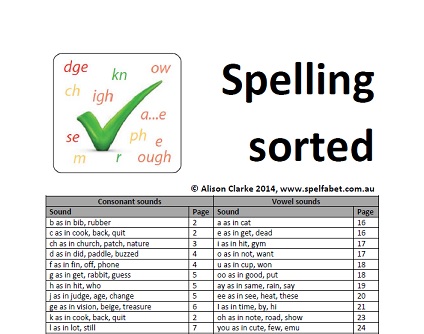
I’ve been trying to think of ways to help teachers organise their thinking about sounds and letters, and make teaching children about sounds and spellings seem interesting, finite and do-able.
Years ago I went through the whole dictionary and sorted it by sound (phoneme) and spelling pattern (grapheme), and made a spiral-bound booklet of spelling lists for myself called Spelling Sorted.
This put examples of every spelling pattern at my fingertips.
Showing learners the patterns
It let me confidently demonstrate to learners both the major patterns (like the “ai” in “rain”, “sail” and “maid”), and unusual ones (the “ai” in “said”, and also “again” and “against”, if you have an Australian accent like me).
It let me show learners how some spellings are shared by more than one sound, e.g. the “ou” in “shout”, “soup”, “country”, “soul”, “cough” and even “ouija” (incidentally, a word created by putting the French and German words for “yes” together).
It also helped me explain to learners that English spelling is complex because English is made up of words from many languages. For instance, the “ph” in “phone”, “elephant” and “alphabet” is usually in words that come from Greek, and the “é” in “café”, “paté” and rosé” is usually from French, and words with “ng” like “sing”, “long” and “hang” are usually Germanic-origin words brought into English very early by the Angles, Saxons, Jutes or Vikings.
Spelling Latin endings
10 Replies
Words with Latin endings can be confusing to spell. To get a handle on them, I like to organise them into groups:
“sh” sound Latin endings
- Many, many words have the sound “sh” spelt “ti” as in “action”, “cautious” and “patient”.
- Some others are spelt with “ci” as in “special”, “magician” and “vicious”.
- A third group are spelt with “si” as n “mansion”, “tension” and “extension”.
- A fourth group are spelt with “ssi” as in “mission”, “passion” and “discussion”.
Some spelling reformers would have us spell all these words with “sh” – “acshon”, “speshal”, “manshon”, “mishon” etc, like rappers do. But I hope this table makes their current spellings seem more logical:


